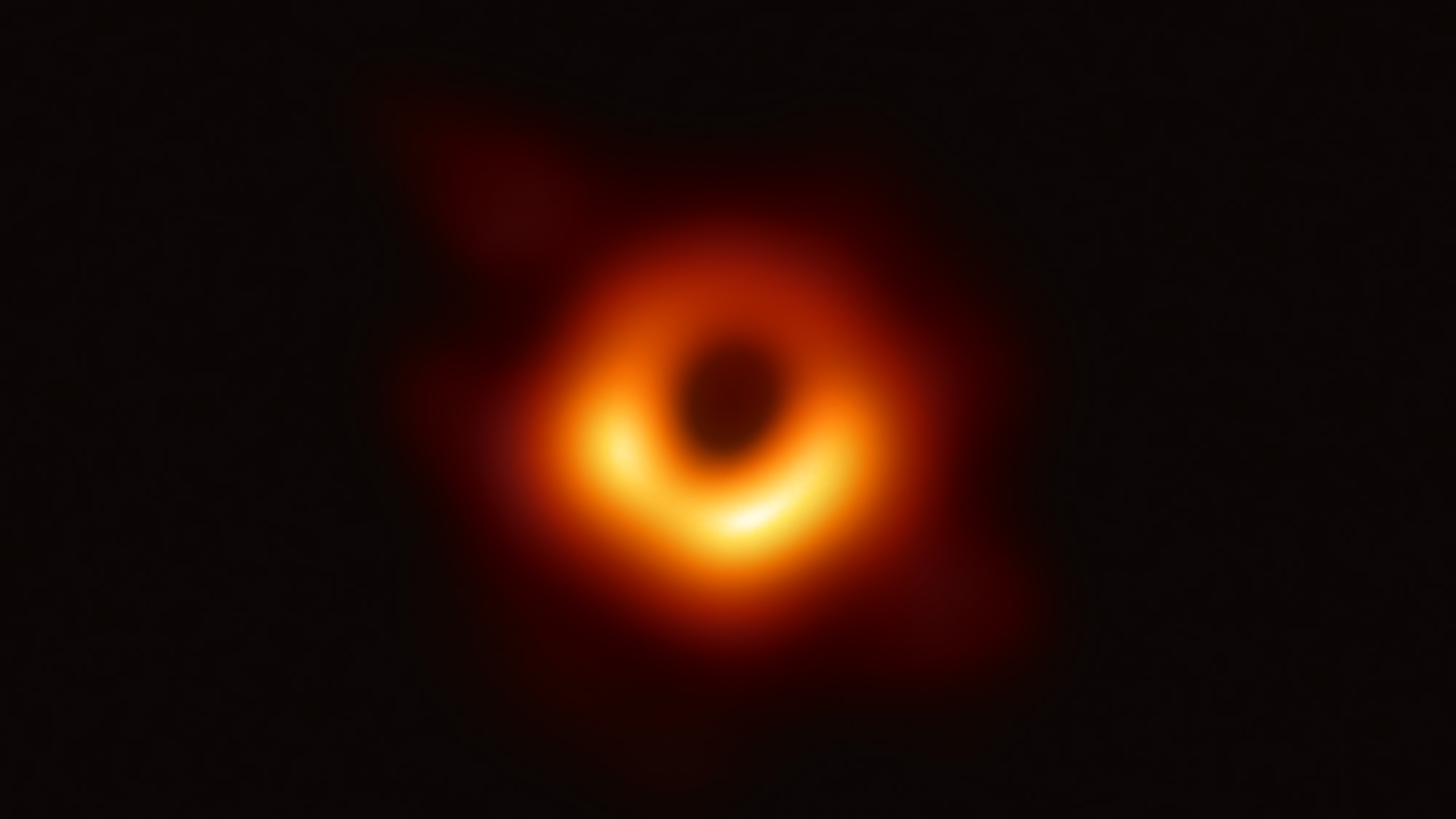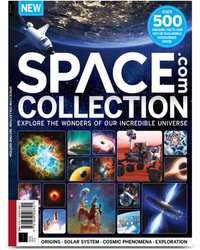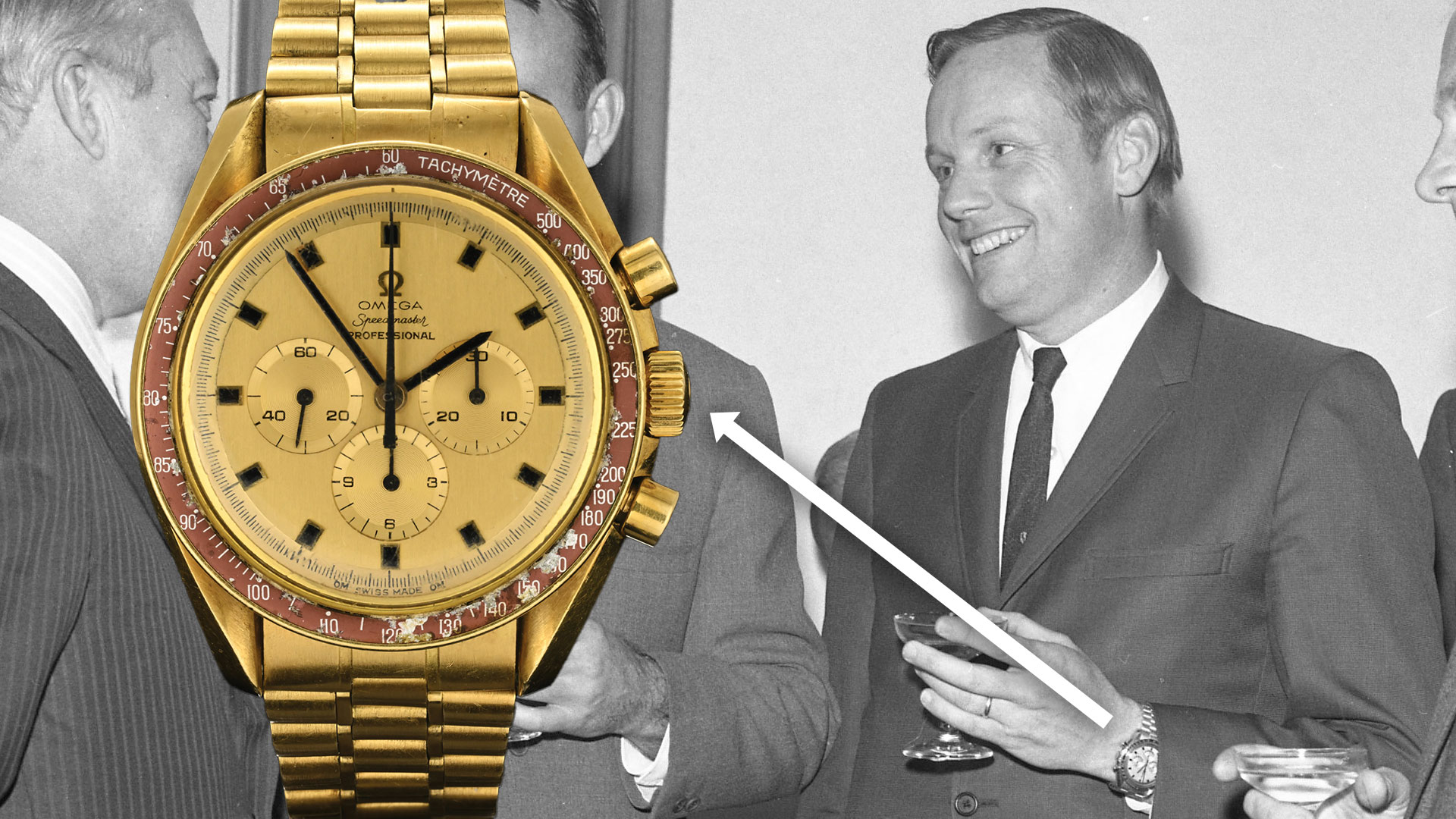"We have a goal that's never been done before: We want to take the first picture of a black hole, something that struggles with all of its might to be unseen."
The new trailer for the upcoming documentary "Black Holes: The Edge of All We Know" — exclusively provided to Space.com — opens with these words, spoken by Event Horizon Telescope (EHT) founding director Shep Doeleman. As we all know, the international EHT team achieved that audacious goal, capturing an image of the supermassive black hole at the heart of the galaxy M87.
The epic photo captivated the world when Doeleman and his colleagues released it in April 2019, and it continues to resonate today. Indeed, that first direct look at a black hole's silhouette has become embedded in our culture, serving as a symbol of what humanity is capable of when it aims high and works together.
Related: What exactly is a black hole event horizon (and what happens there)?

Space.com Collection: $26.99 at Magazines Direct
Get ready to explore the wonders of our incredible universe! The "Space.com Collection" is packed with amazing astronomy, incredible discoveries and the latest missions from space agencies around the world. From distant galaxies to the planets, moons and asteroids of our own solar system, you’ll discover a wealth of facts about the cosmos, and learn about the new technologies, telescopes and rockets in development that will reveal even more of its secrets.
"Black Holes: The Edge of All We Know" explores the many meanings of black holes and that pioneering photo. The 98-minute documentary, which will become available March 2 via video on demand, also provides an inside look at how the image came together. It shines a spotlight on the inner workings of the EHT, a consortium of hundreds of scientists who analyze data from big, far-flung radio dishes that together function as an observatory the size of Earth itself.
That look will likely be revelatory for many people.
"In retrospect, we can see science as just this constant march forward," the film's director, Peter Galison, told Space.com. "But there are setbacks and frustrations, and I wanted to show the interior action of science and to bring people inside the room in which that's happening — or, in the case of the Event Horizon Telescope, the many rooms all over the world."
Get the Space.com Newsletter
Breaking space news, the latest updates on rocket launches, skywatching events and more!
The documentary unspools a second black-hole thread as well — the efforts of scientists such as Andy Strominger, Sasha Haco and Malcolm Perry to resolve the "information loss paradox." This troubling idea, which the late Stephen Hawking introduced to the world in the 1970s, posits that black holes may destroy information, something that our best understanding of physics suggests should be impossible.
Hawking is featured in "Black Holes: The Edge of All We Know," which shows one of the greatest minds in recent memory very much at work.
"My hope is that people could see Hawking as a thinking scientist, and not only as the international icon and symbol that he has become," said Galison, a professor of physics and the history of science at Harvard and a co-founder of the university's interdisciplinary Black Hole Initiative.
It's "that sense of his inquisitive, curious pleasure in inquiry that I hope to convey in the film," he added.
You can learn much more about "Black Holes: The Edge of All We Know" at http://blackholefilm.com/. And, once March 2 rolls around, you can watch the whole documentary.
Mike Wall is the author of "Out There" (Grand Central Publishing, 2018; illustrated by Karl Tate), a book about the search for alien life. Follow him on Twitter @michaeldwall. Follow us on Twitter @Spacedotcom or Facebook.
Join our Space Forums to keep talking space on the latest missions, night sky and more! And if you have a news tip, correction or comment, let us know at: community@space.com.

Michael Wall is a Senior Space Writer with Space.com and joined the team in 2010. He primarily covers exoplanets, spaceflight and military space, but has been known to dabble in the space art beat. His book about the search for alien life, "Out There," was published on Nov. 13, 2018. Before becoming a science writer, Michael worked as a herpetologist and wildlife biologist. He has a Ph.D. in evolutionary biology from the University of Sydney, Australia, a bachelor's degree from the University of Arizona, and a graduate certificate in science writing from the University of California, Santa Cruz. To find out what his latest project is, you can follow Michael on Twitter.










